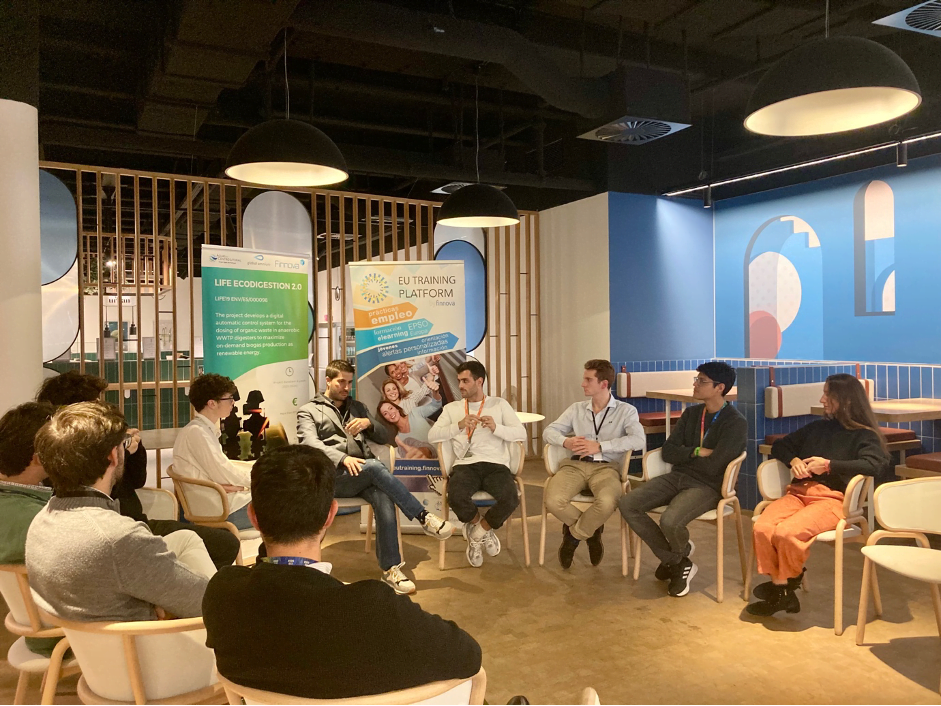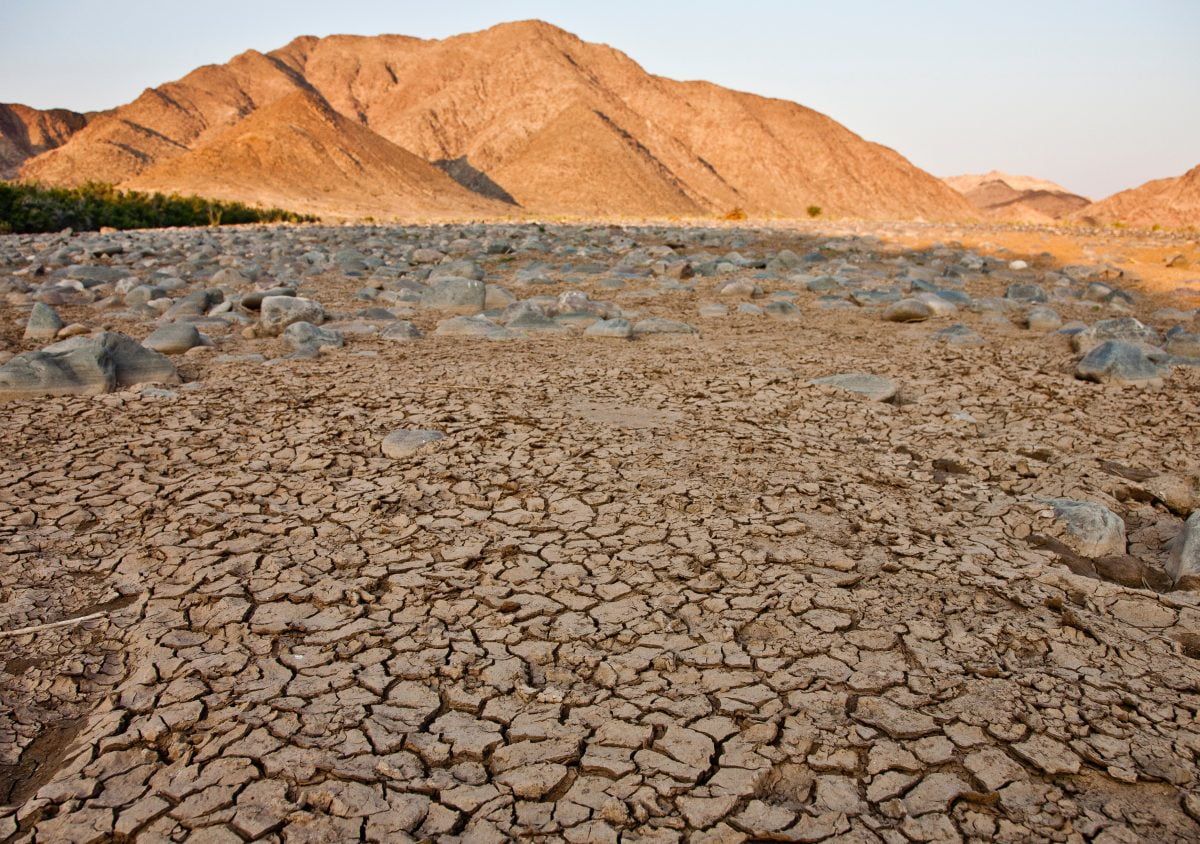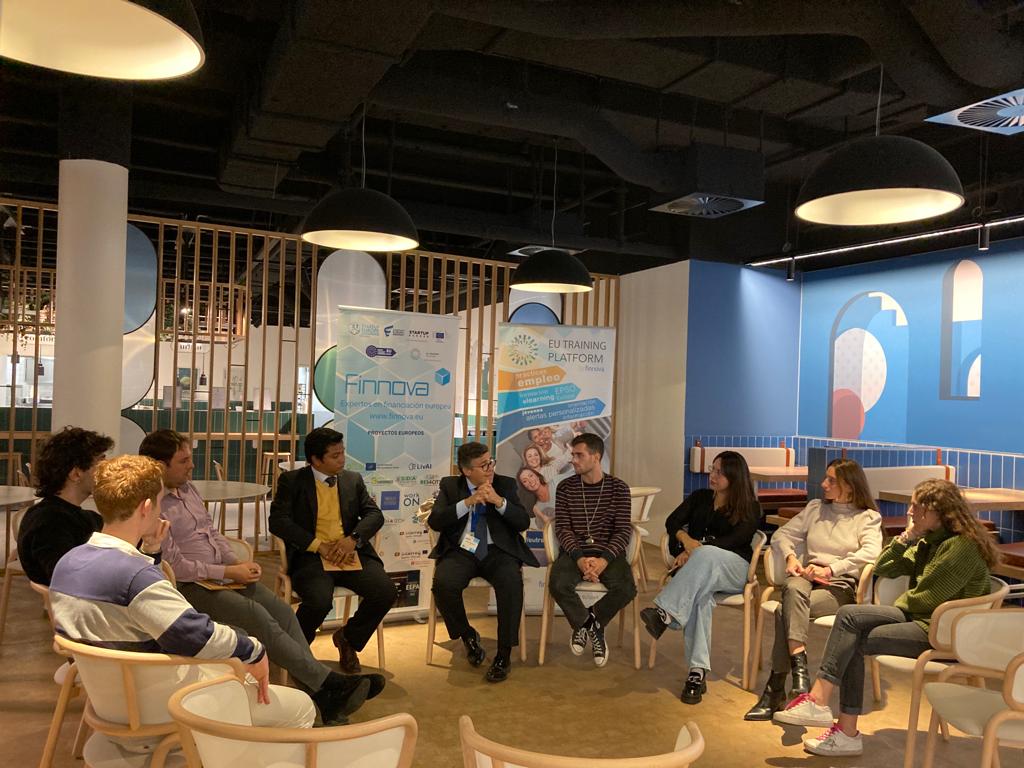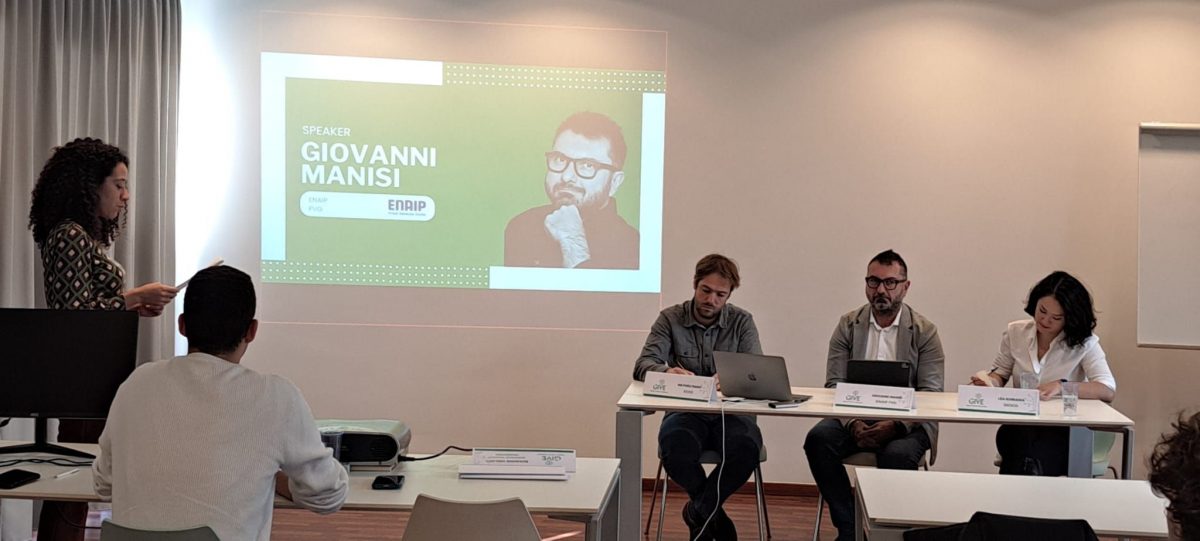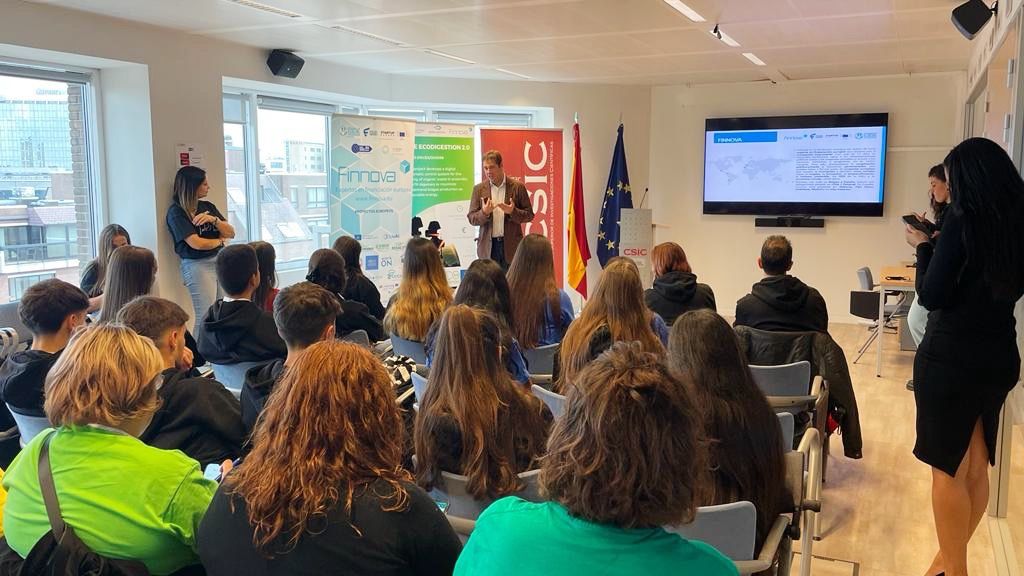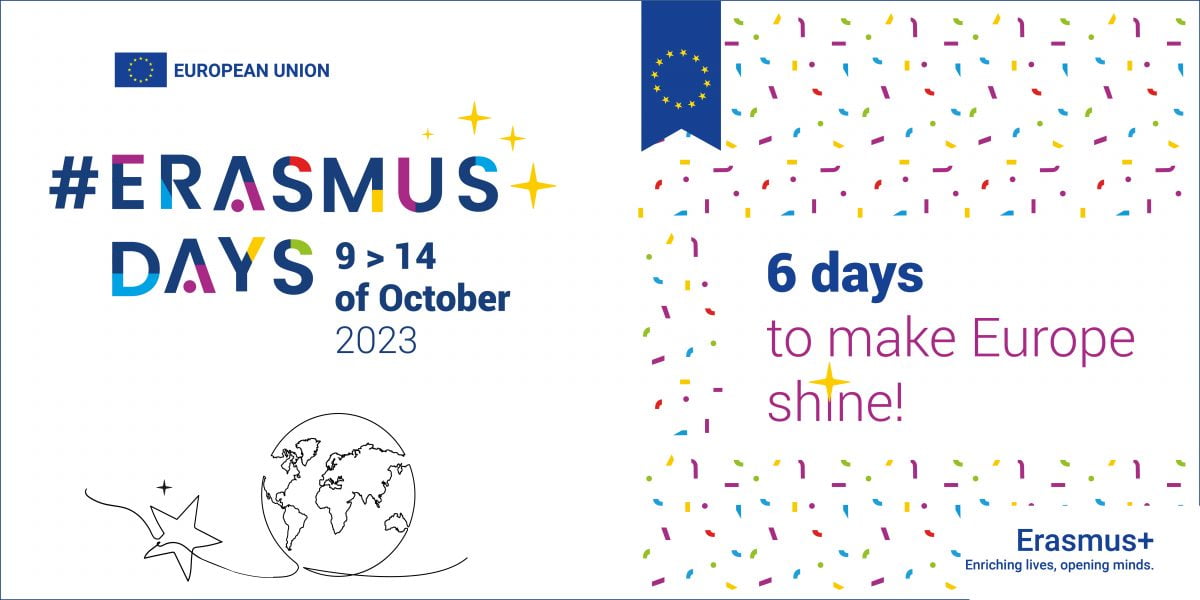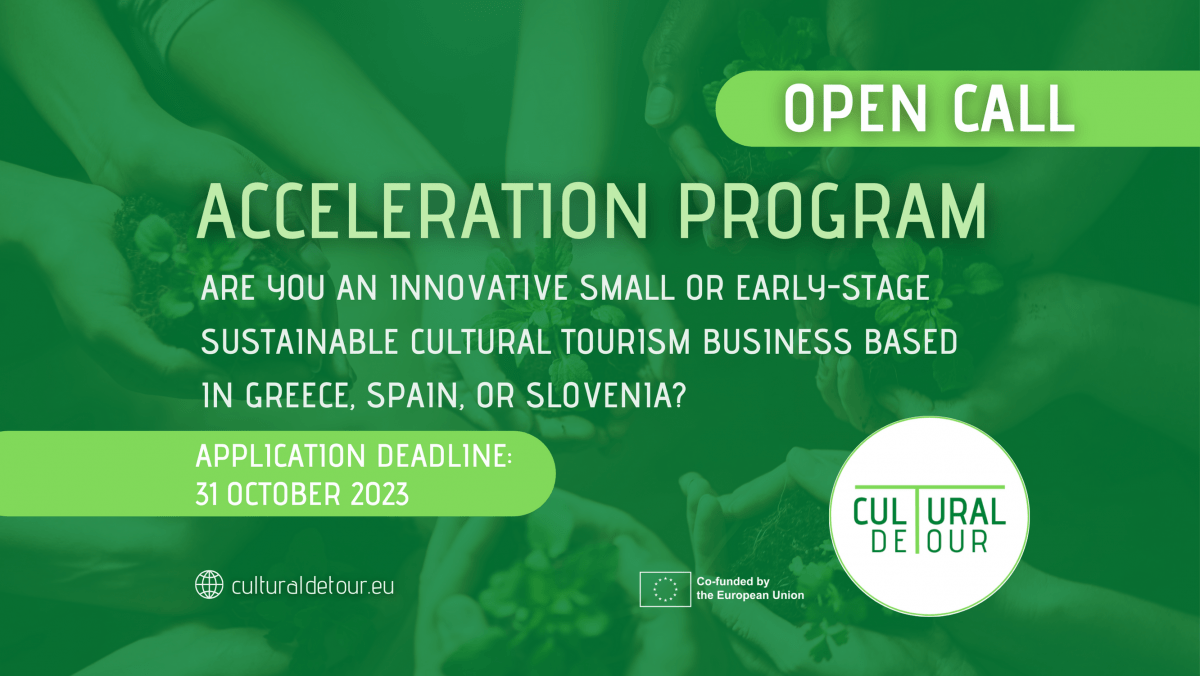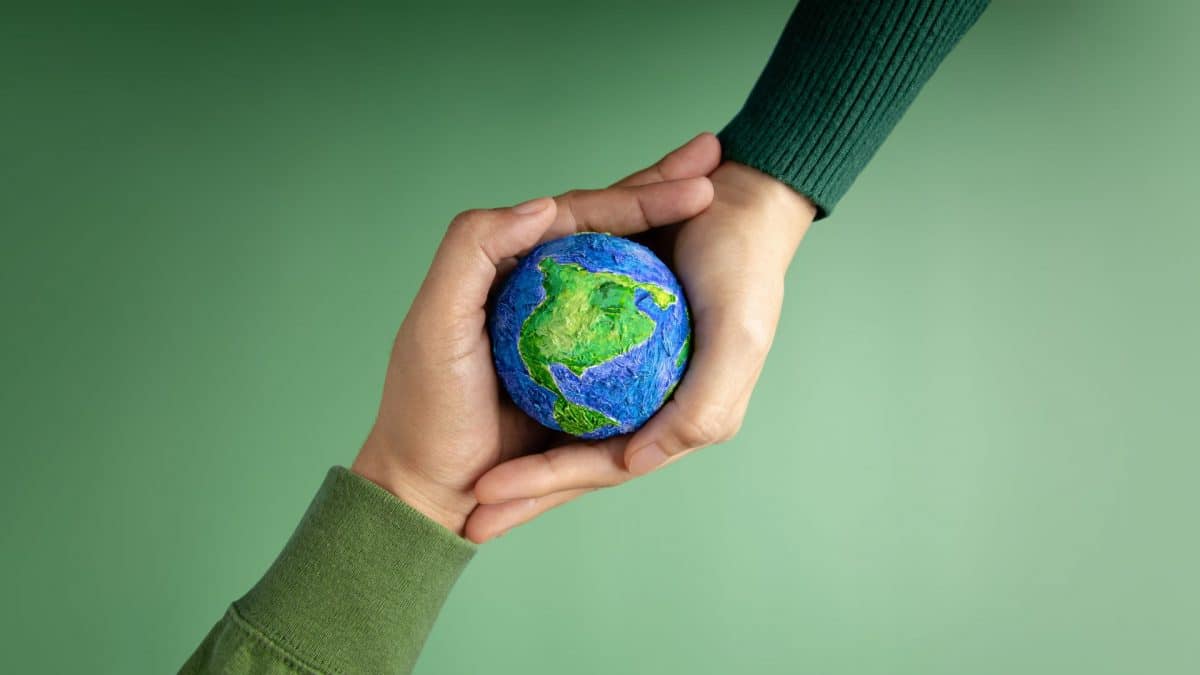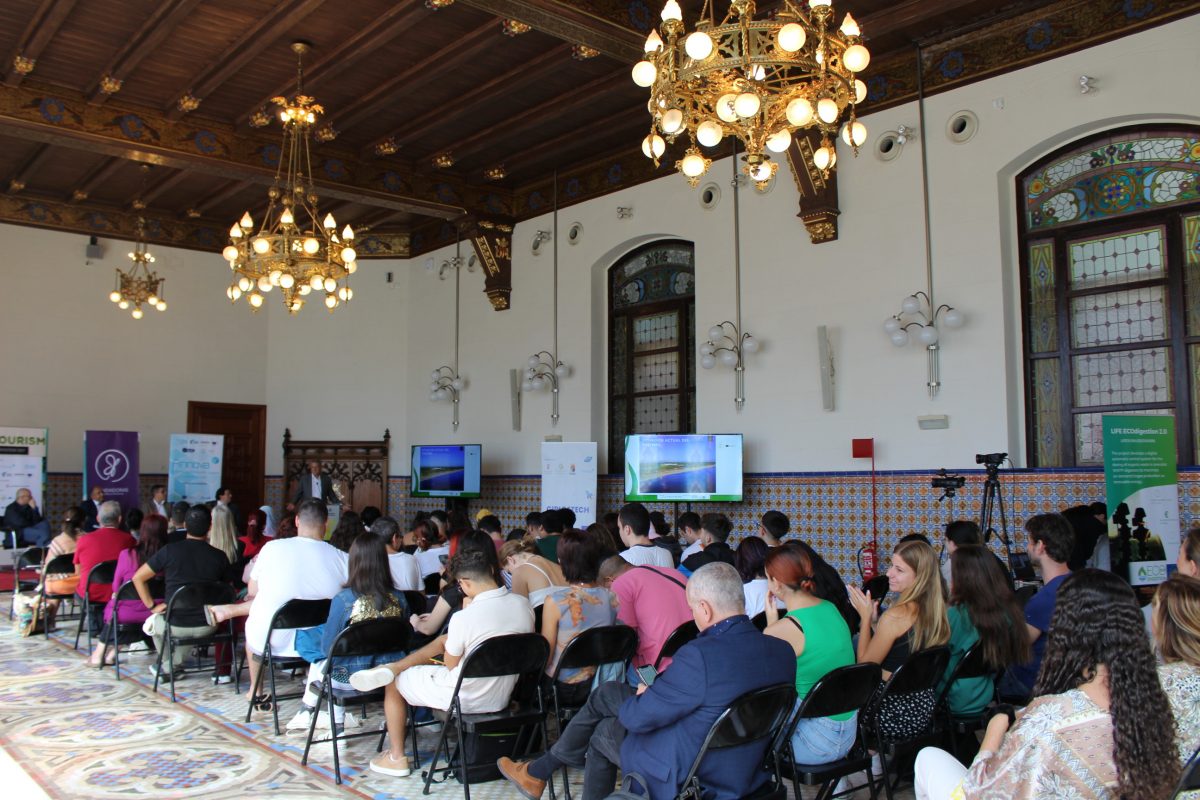- The forum was attended by Víctor Rubio Gómez, director of strategy and innovation at Masergrup and former member of the Finnova team
- The presentation was focused on his professional career and the opportunities that his time at Finnova brought him
26/10/2023, Brussels. Last Tuesday, October 24, the Finnova Foundation headquarters in Brussels hosted the VI Next Talent Generation Forum. This sixth edition counted with the participation of Víctor Rubio Gómez, Director of Strategy and Innovation at Masergrup and former member of the Finnova team in Brussels.
During the talk, Rubio explained to the Brussels team details of his successful career, which began as an intern at Finnova between 2011 and 2012. About those beginnings, Rubio highlighted the opportunity that Finnova provided for his career at a time when “the outlook was very bad” due to the Spanish property bubble crisis.
Thanks to his training at Finnova, Rubio began to become a professional in the field of European funds, “an area in those years in which there was a general lack of knowledge about,” he said. His specialization in European funds and his passion for innovation led him to continue his career focused on R&D, maintaining his link with European funding through the promotion of Horizon 2020 funds. On this aspect, Rubio stressed the importance of “not being mere fund-raisers, but having a business vision, conscientiously reviewing the calls, knowing how to add value and how to ensure that the grant ends up having an impact on the real economy”.
Since 2021, Rubio has held the position of Director of Strategy and Innovation at Masergrup, a business group from Reus that integrates reference companies such as Global Fruselva (baby food), Vermuts Miró (spirits), and TQ Tecnol (professional products for industry). It is a business group with more than 25 years of history that has production plants in Spain, Colombia and Chile; representative offices in the same countries as well as in the USA, Mexico and China and presence in more than 53 countries with presence in the professional, health, food and service industries.
The Finnova team in Brussels then inquired about his professional career and the lessons he learned from his time at Finnova. Rubio highlighted the good fortune of working alongside the Foundation’s CEO, Juan Manuel Revuelta, from whom he stressed the importance of hard work, love for the profession “whatever it may be” and team management. “From Juanma I learned how important it is to love the profession and the capacity for sacrifice that you have to have in order for projects to become a reality, since there are many people in the world and if you don’t execute the projects, they will be the ones to do it,” concluded Rubio.
Other aspects discussed at the roundtable included issues such as success, a subject on which Rubio was cautious. “Success is very relative. I understand that many of you are at the beginning of your careers and that, sometimes, you want to achieve everything very quickly, but from my experience, I can tell you that if you work, you will get where you want to go, but step by step,” Rubio said.
Finally, another of the topics that took center stage in the debate between Rubio and the Finnova team was the role of the consumer and the keys to reach him. Rubio stressed the importance of managing to apply innovation to the real economy, but in a way that does not affect the consumer “too much”. “Many times, the consumer is blamed for the failure of the products, when in reality, the failure lies in not having listened to their needs; it is a simple task of listening to the consumer; to the whole environment and giving the person who is going to pay for your products what they don’t know they want but need at a price they are willing to pay,” concluded Rubio.
Res4City Project
From Finnova Foundation, we thank Rubio for his intervention in the VI Next Talent Generation Forum, which serves as an example for our workers who are starting and orienting their professional careers. During this talk, Rubio explained how he started in the field of innovation thanks to Finnova, a European foundation that supports the financing of innovation in companies, regions and municipalities. Finnova is currently a partner in the European project RES4CITY, an innovative 2.5 million euro educational project 100% funded by the European Commission through the Horizon Europe program. The RES4CITY education program, whose main objective is to bridge the skills gap that is slowing our transition to sustainable energy, will be designed by a multidisciplinary group of partners from academia, industry and European NGOs with expertise in energy management, renewable energy systems, renewable fuel technologies and the development and implementation of sustainability strategy design.
About the Finnova Foundation
Finnova is a foundation working for the promotion and development of innovation and entrepreneurship at the EU level. Based in Brussels, it operates through collaborations and partnerships in all countries of the European Union. Finnova’s experience in leading European project communication and dissemination activities is combined with a strong proven expertise in start-ups and business support programs, such as accelerators, incubators and ceremonial event selection and awarding.

